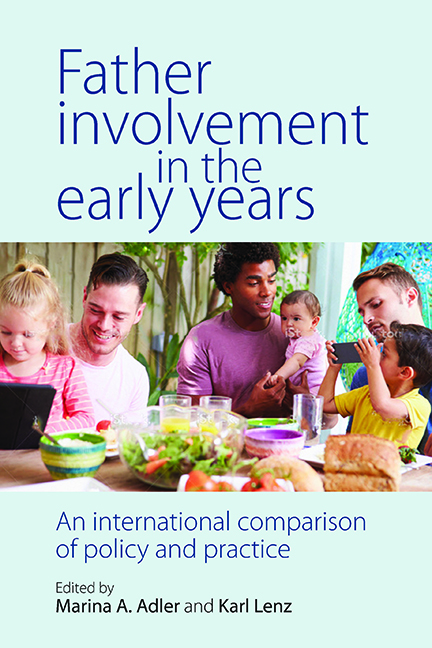Three - Italy
Published online by Cambridge University Press: 01 September 2022
Summary
The cultural and policy context of fatherhood
Italy occupies a rather peculiar position among Western countries when it comes to family policy in general, as well as to policies directed at fathers in particular. The historical development of the Italian welfare state does not derive from a consistent policy line or recognisable cultural matrix. The original liberal and later corporatist welfare state was politically discredited in the post-war years, and it was never replaced with a coherent model (Trifiletti, 1999). There has been a generalised gradual increase of provisions of labour market protections for specific categories of workers.
While the state does not take on the responsibility of guaranteeing a family wage, it allows nuclear or extended families to pursue strategies to ensure that at least one member has a well- protected job (Petmesidou, 1996). Saraceno (1995: 279–80) argues that:
the Italian familist welfare regime is not exclusively nor even primarily based on a strong breadwinner model, but on the family as perceived as a unit of income and resources, to which everyone contributes according to his/her opportunities, although they may differ by gender. What is assumed is not the figure of breadwinner but family solidarity – including kin – and the primary responsibility of women – married and mothers – in the provision of care.
This is also reflected in low levels of state support for families: in 2009, Italy spent only 1.58% of gross domestic product (GDP) on family benefits, as compared to the Organisation for Economic Co-operation and Development (OECD) average of 2.61% (OECD, 2014). Furthermore, Italy spent 27.8% of GDP on public social expenditures (compared to the OECD average of 22.1%), and only 24.1% of that was spent on early education and childcare.
Italian culture may be defined as familistic. Familism refers to a set of normative beliefs that describes a strong attachment and loyalty to one's family, emphasises the centrality of the family unit, and stresses the obligations and support that family members owe to both nuclear and extended kin (Saraceno, 2003; Rossi, 2009). This includes a strong reliance on family members for material and emotional help.
- Type
- Chapter
- Information
- Father Involvement in the Early YearsAn International Comparison of Policy and Practice, pp. 97 - 126Publisher: Bristol University PressPrint publication year: 2015



